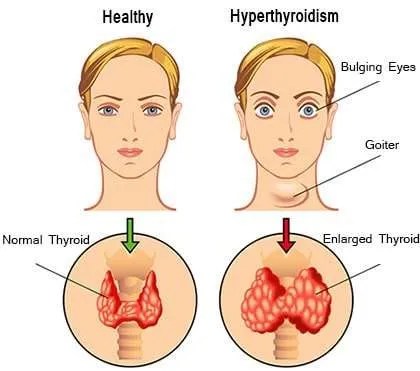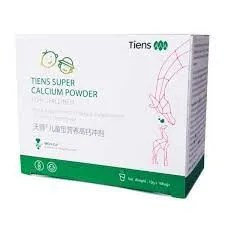
General Health Blog
9 Hyperthyroidism Symptoms You Must Know About
Hyperthyroidism, thyroid hormones
Hyperthyroidism is a condition in which the thyroid gland produces too much hormone. It can lead to problems like overactive metabolism. Hyperthyroidism does not put you at risk for cancer. Some of the diseases associated with this ailment include Graves’ disease, Basedow’s disease, diffuse toxic goitre, thyrotoxicosis, and Parry’s disease. Hyperthyroidism afflicts about 1% of the United States’ population. However, the correct figure could be much higher, as many people are unaware of it.
About the Thyroid and Hyperthyroidism
The thyroid gland is just below the Adam’s apple and produces hormones that regulate metabolism. It does this by assisting in protein production. Increasing the rate of oxygen absorption for each cell it supplies with thyroxine (T4) or triiodothyronines (T3).
The pituitary gland, on the other hand, controls the production of these hormones. The pituitary gland yields the thyroid-stimulating hormone (TSH) which triggers the production of the thyroid hormones. If in spite of the amount of TSH being secreted, the thyroid hormone production is still continuing on the increase, hyperthyroidism occurs. The abundance of thyroid chemicals in the bloodstream causes the body’s metabolism to go into overdrive thereby creating both physical and mental symptoms.

9 Hyperthyroidism Symptoms to be aware of
A Thin Skin
Due to their influence on BMR (basal metabolic rate), the thyroid hormones influence the functioning of the heart, blood, and nervous system; all of which indirectly affect the skin. Thus, hyperthyroidism causes your skin to shed a little faster which results in smoother but thinner skin. Additionally, the skin will tend to be moist, warm, and have increased pigmentation.
Weight Loss
Because of elevated metabolic rate levels, people with hyperthyroidism will experience some weight loss. This is because the thyroid’s over activeness increases the individual’s caloric requirements needed to maintain their weight.
Elevated Body Temperature
The increased rate of metabolism will speed up all your standard body processes. You are bound to feel hot because you’re burning energy at such a fast pace.
Emotional Changes
The overstimulated central nervous system will lead to various psychological changes. Hyper-emotionality, anxiety, and even psychosis; additionally, these individuals often have short attention spans or difficulty concentrating because their brain needs constant stimulation in order for them not to feel overwhelmed (or crazed).
Rapid Pulse
Rapid heart palpitations are a common symptom of this disease. You may also experience other symptoms such as fast breathing and an increased sweat rate.
Incidentally, the first indicator of Graves’ disease is atrial fibrillation; an irregular rhythm of the heartbeats. Hyperthyroidism may induce heart failure in senior citizens who already have heart disease. Additionally, one might experience shortness of breath.
Tremors
Hyperthyroidism causes tremors, especially in your fingers when you hold onto them. You might also notice an increase in reflexes and inability to stay still, especially while walking around or performing other daily tasks where this would not happen normally for someone without hyperthyroidism.
Irregular Bowel Movements
Hyperthyroidism also hastens the process of digestion. The Result, frequent visits to the loo. And in other instances, diarrhea. You might also experience vomiting and nausea. Since the kidneys will be working and filtering more and at a faster rate, you will see an increase in the number of times you pass urine.
-

![]()


Symptoms of Hyperthyroidism -

![Hyperthyroidism]()


Symptoms of Hyperthyroidism
Bulging Eyes
Hyperthyroidism causes changes in the eyes. Luckily, they are reversible. The eyelids will be pulled up so high that even the white above the pupil is visible. This gives the impression that a person suffering from hyperthyroidism is staring or has a popped eye.
Altered Menstrual Cycles
You may begin to experience irregular Periods. They may become lighter, and in some cases even stop altogether.
Treatment of Hyperthyroidism
It’s important to note that most of the symptoms and signs associated with hyperthyroidism can also be caused by other ailments. Therefore, it is crucial to visit an endocrinologist so that they can diagnose and treat you if you do have the disease.
Medications
Your doctor may prescribe medications for the treatment of hyperthyroidism.
Radioactive iodine.
Radioactive iodine is taken orally. It is then absorbed into your thyroid gland where it shrinks the organ and causes symptoms to subside within a few months of consumption. You should be aware that excess exposure may lead to hypothyroidism. In which case you may need thyroxine replacement therapy in order to stay healthy.
Anti-thyroid medications
Anti-thyroid medications are medications that prevent the thyroid gland from producing excessive hormones. Treatment with anti-thyroid meds may last up to a year, sometimes longer. However, you should be seeing an improvement in the conditions within the first few months.
The drawdown here is that there are sometimes side effects to these drugs, such as Liver damage which may lead to death, skin rashes, fever, and sometimes infections. Examples of anti-thyroid meds are methimazole and propylthiouracil.
Beta-blockers.
Beta-blockers are useful for treating the symptoms of hyperthyroidism. They don’t actually cure the disease. It may also have some side effects such as sexual dysfunction and tiredness.




Natural Supplements
When it comes to the natural treatment of Hyperthyroidism it’s important to consult your doctor before taking some natural supplements. One of the reasons for this is that a lot of natural supplements contain iodine. And we know that excessive iodine can lead to hyperthyroidism. However, there are some supplements you may wish to consider.
L-carnitine
L-carnitine is a natural supplement that may help treat the effects of hyperthyroidism. Weight loss supplements and food, like meat or dairy products for example. Are some of its sources.
L-carnitine contains an amino acid called taurine which helps prevent thyroid hormone from entering certain cells; this could be why it prevents symptoms associated with having too much thyroxine (elevated heartbeat/palpitations). A 2001 study suggests people who take L-carnitine regularly, including those living with issues like palpitations, were able to reverse their condition after taking L-carnitine even if they didn’t experience any improvement at first.
Bugleweed
Bugleweed has been used historically to treat heart and lung conditions. However, some sources suggest it can also be a thyrosuppressant. Thyroid function may reduce due to the bugleweed. This would make this herb an effective treatment for hyperthyroidism. When using herbal supplements like Bugleweed make sure to follow the guidelines or recommended dosage.
B-complex or B-12
For those who have hyperthyroidism, a vitamin B-12 deficiency can be an issue as well. The symptoms of this include feeling weak and dizzy from time to time. This is why many doctors recommend taking supplements or injections if you don’t get enough vitamins in your diet already. While these treatments help manage some problems with energy levels for people living with the hypothyroid disease, they won’t cure it on their own.
Click here to order vitamins online
Glucomannan
Glucomannan is a dietary fiber found in the form of capsules, powders, and tablets. It’s often derived from konjac plants that grow near bodies of water like ponds or rivers.
According to a promising study, glucomannan may be able to help with hyperthyroidism. However, more evidence needs to come out before we can say for sure how well glucomannans work.
Surgery
This option is usually for people who do not want to take radioactive medications. Or pregnant women who can’t tolerate anti-thyroid medications. The downside of this option is that you may have to be placed on certain medications for the rest of your life. Because at the end of the day, your body does need the thyroid gland, so if you choose to remove it, you must have a way to replace hormones produced by the thyroid gland.
Summary
Hyperthyroidism is a condition where the thyroid gland produces too many hormones. Some symptoms are weight loss, muscle weakness, and fatigue. Other more serious conditions can arise if left untreated such as heart disease or osteoporosis. Luckily hyperthyroidism has many treatment options available to help manage these symptoms! If you’ve been experiencing any of the above-mentioned symptoms get some professional guidance on what course of action is best for your health.
Also, visit our online supplement store today! We have plenty of natural supplements that may be able to relieve your stress levels when it comes to managing this disorder.




Click here to visit HEALTH-PLANET Natural Solutions online store























Leave a Reply
You must be logged in to post a comment.